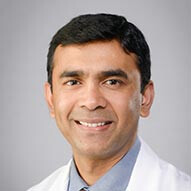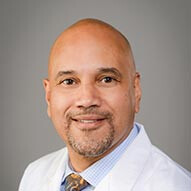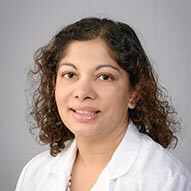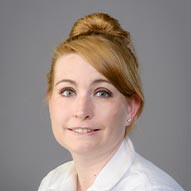Pediatric H. pylori infection
The pediatric gastroenterologists at Children's Health℠ are leaders in helping children overcome stomach issues that can affect how they eat and grow. Our expertise has earned a pediatric specialty ranking by U.S. News and World Report. Using the latest technology and evidence-based care, we can help get rid of H. pylori infection so your child can get the nutrition they need to grow well and feel their best.
What is pediatric H. pylori infection?
H. pylori (Helicobacter pylori) is a common, spiral-shaped bacteria that lives in the stomach lining and upper part of the small intestine. Because H. pylori is covered by mucus, your child’s immune system can’t attack it and get rid of it.
H. pylori often causes no symptoms or problems. However, in some children it can cause stomach ulcers or inflammation in the stomach or small intestine.
What are the signs and symptoms of pediatric H. pylori infection?
Anemia (low blood counts)
Blood in the stool
Excessive burping
Feeling of being bloated
Fever
Gnawing pain in the stomach that may come and go, or a severe, ongoing pain
Heartburn
Nausea
Never being hungry
Trouble swallowing
Unexplained, sudden weight loss
Many children infected with H. pylori have no symptoms. If your child shows any of these symptoms, contact your child’s pediatrician. They can be a sign of H. Pylori or other gastrointestinal problems.
How is pediatric H. pylori infection diagnosed?
The expert gastroenterologists at Children’s Health use non-invasive and minimally invasive tests to diagnose H. Pylori infection. These tests may include:
Stool tests to look for H. pylori
Breath tests to check hydrogen levels in your child’s breath
Upper endoscopy exam using a small camera to look at your child’s stomach lining
What causes pediatric H. pylori infection?
Your child can get H. pylori infection by coming into contact with an infected person’s saliva or stool. They may also get it by eating or drinking contaminated food and water.
How is pediatric H. pylori infection treated?
H. Pylori infection is treated with medicines. Your child will take:
A combination of antibiotics to kill the bacteria
A stomach-acid reducing medication (called a proton-pump inhibitor) that allow ulcers to heal
Your child may also be asked to take an anti-diarrhea medicine that coats the inside of the stomach to protect it from acid while it heals
Your doctor may test your child after 4 weeks of treatment to make sure the infection is gone and their stomach has healed.
Pediatric helicobacter pylori (H. pylori) infection doctors and providers
 Bradley Barth, MDPediatric Gastroenterologist
Bradley Barth, MDPediatric Gastroenterologist Michele Alkalay, MDPediatric Gastroenterologist
Michele Alkalay, MDPediatric Gastroenterologist Amal Aqul, MDPediatric Hepatologist
Amal Aqul, MDPediatric Hepatologist Sarah Barlow, MDPediatric Gastroenterologist
Sarah Barlow, MDPediatric Gastroenterologist Nandini Channabasappa, MDPediatric Gastroenterologist
Nandini Channabasappa, MDPediatric Gastroenterologist Aakash Goyal, MDPediatric Gastroenterologist
Aakash Goyal, MDPediatric Gastroenterologist Bhaskar Gurram, MDPediatric Gastroenterologist
Bhaskar Gurram, MDPediatric Gastroenterologist Lauren Lazar, MDPediatric Gastroenterologist
Lauren Lazar, MDPediatric Gastroenterologist Megha Mehta, MDPediatric Gastroenterologist
Megha Mehta, MDPediatric Gastroenterologist Derek Ngai, MDPediatric Gastroenterologist
Derek Ngai, MDPediatric Gastroenterologist Charina Ramirez, MDPediatric Gastroenterologist
Charina Ramirez, MDPediatric Gastroenterologist Norberto Rodriguez-Baez, MDPediatric Hepatologist
Norberto Rodriguez-Baez, MDPediatric Hepatologist Isabel Rojas Santamaria, MDPediatric Gastroenterologist
Isabel Rojas Santamaria, MDPediatric Gastroenterologist Rinarani Sanghavi, MDPediatric Gastroenterologist
Rinarani Sanghavi, MDPediatric Gastroenterologist Meghana Sathe, MDPediatric Gastroenterologist
Meghana Sathe, MDPediatric Gastroenterologist Mhammad Gaith Semrin, MDPediatric Gastroenterologist
Mhammad Gaith Semrin, MDPediatric Gastroenterologist Luis Sifuentes-Dominguez, MDPediatric Gastroenterologist
Luis Sifuentes-Dominguez, MDPediatric Gastroenterologist David Troendle, MDPediatric Gastroenterologist
David Troendle, MDPediatric Gastroenterologist Phuong Luu, PA-CPhysician Assistant - Gastroenterology
Phuong Luu, PA-CPhysician Assistant - Gastroenterology Van Nguyen, APRN, PNP-PCNurse Practitioner - Gastroenterology
Van Nguyen, APRN, PNP-PCNurse Practitioner - Gastroenterology Jennifer Peacock, APRN, PNP-PCNurse Practitioner - Gastroenterology
Jennifer Peacock, APRN, PNP-PCNurse Practitioner - Gastroenterology Shabina Walji-Virani, APRN, PNP-PCNurse Practitioner - Gastroenterology
Shabina Walji-Virani, APRN, PNP-PCNurse Practitioner - Gastroenterology Christine Winser-Bean, APRN, FNPNurse Practitioner - Gastroenterology
Christine Winser-Bean, APRN, FNPNurse Practitioner - Gastroenterology